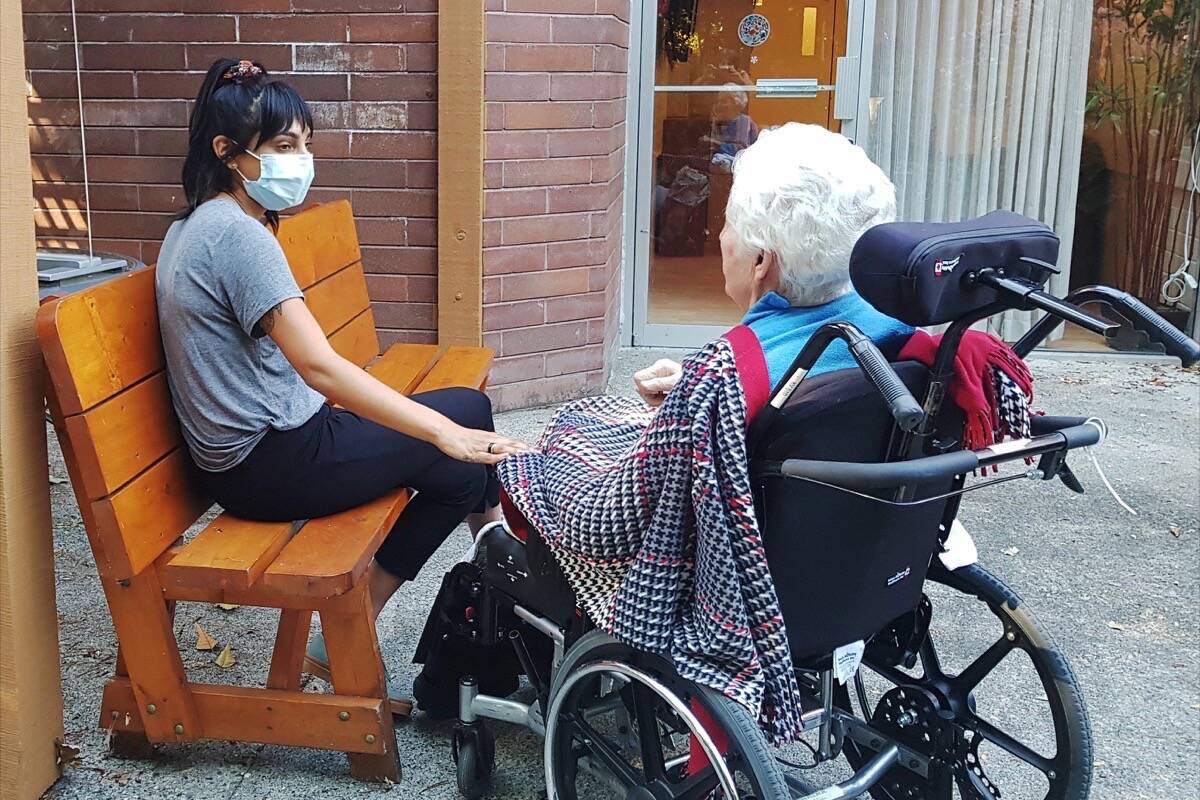Screening and rapid testing of visitors to B.C. senior care homes is already creating lineups with residents restricted to two designated visitors, and waits are expected to be longer when that restriction comes off by March 18.
With COVID-19 rapid tests available free at pharmacies for people aged 50 and older, that wait could be reduced if visitors were allowed to do their tests at home before a visit, B.C. Care Providers Association CEO Terry Lake said Friday.
“What we’ve suggested is at least have consideration of flexibility in how those tests are done,” Lake said in an interview March 11. “Right now, they’re done at the door. Screeners have to go through a questionnaire, have to check your vaccination status, and then conduct a rapid test. All of that can take quite a bit of time, and we’ve seen people lined up parking lots to go through that process.”
Provincial health officer Dr. Bonnie Henry announced this week that the two-visitor limit is being removed as of March 18, and some managers may be able to allow family groups and more visitors before that. Visitors are still required to show proof of vaccination and wear masks in common areas.
Lake said care homes have supplies of rapid tests that can be given out to regular visitors of any age, who are currently required to be tested at the door three times a week. Home tests would be an honour system, done and reported soon before a visit.
“People who go to visit their loved ones in care homes are pretty darn particular about making sure they’re not bringing a virus in with them, in terms of their behaviour and all the things they can do to prevent that from happening,” he said.
RELATED: Masks no longer mandatory on transit, B.C. Ferries sailings
RELATED: B.C. removes COVID-19 restrictions on kids’ camps, churches
Care homes are asking people to call ahead and schedule their visits, so staff can manage the numbers. The health ministry pandemic program has funded greeters for care homes to work with visitors, but chronic staffing shortages continue as staff members self-isolate when they have respiratory symptoms.
“Some homes may still have the capacity and want to do it all at the door, but if there’s an ability to do it at home ahead of time, I think that builds in some flexibility that would be beneficial for both the homes and for families,” Lake said.
@tomfletcherbc
tfletcher@blackpress.ca
Like us on Facebook and follow us on Twitter.

